#existentialist film
Text
On March 3, 2000, Being John Malkovich debuted in Finland, Brazil, and Sweden.

Here's some new John Malkovich art!
#being john malkovich#spike jonze#charlie kaufman#john malkovich#fantasy film#comedy movies#comedy film#surrealist film#comedy drama#independent film#indie film#metaphysical film#art film#experimental film#self reflexive film#queer film#queer cinema#black comedy#philosophical film#existentialist film#movie art#art#drawing#movie history#pop art#modern art#pop surrealism#cult movies#portrait
4 notes
·
View notes
Text
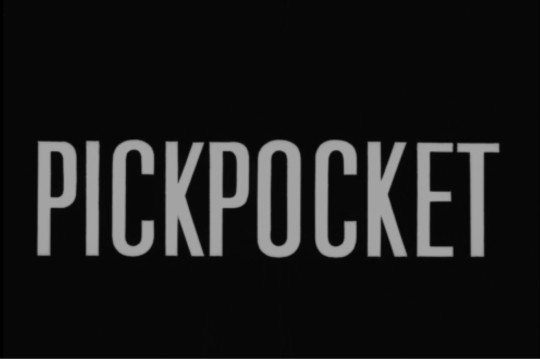
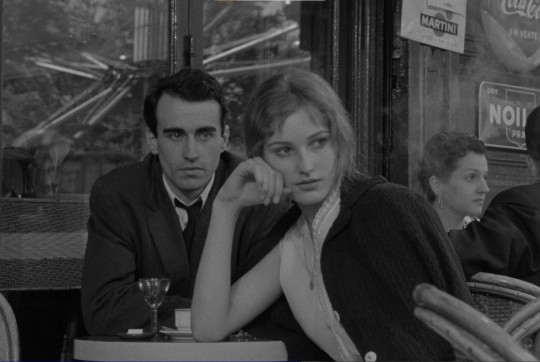
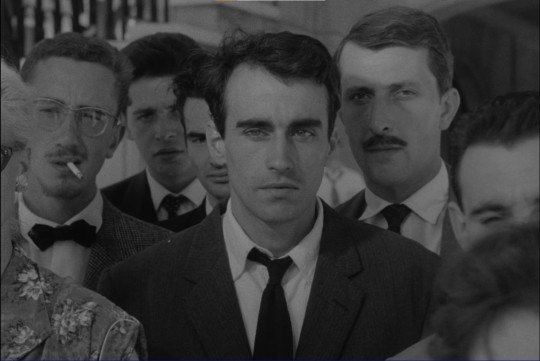
Robert Bresson's Pickpocket, 1959
Do you believe in nothing?
I believed in God, Jeanne, for three minutes.
DoP: Léonce-Henri Burel
#Pickpocket#Robert Bresson#Léonce-Henri Burel#Martin LaSalle#Marika Green#Pierre Leymarie#Jean Pélégri#existentialist cinema#french cinema#cinema#cinematography#cinephilia#threefilmframes#film stills#movie frames
27 notes
·
View notes
Text
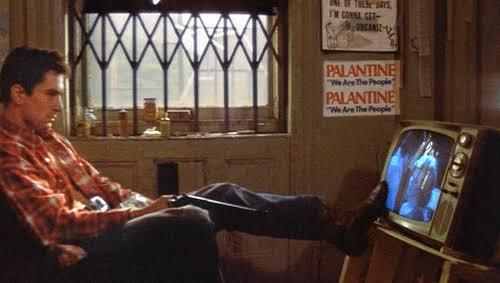
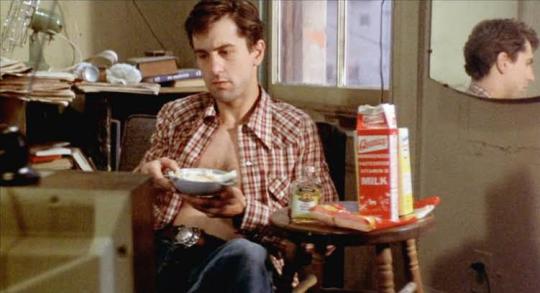
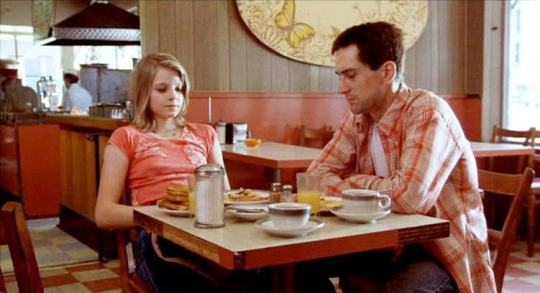
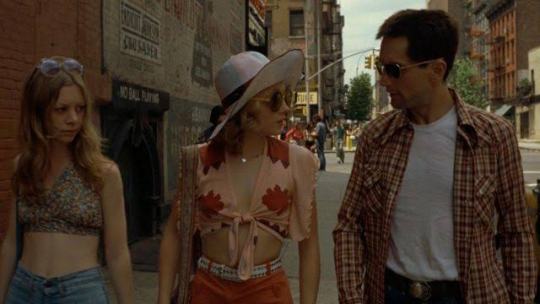
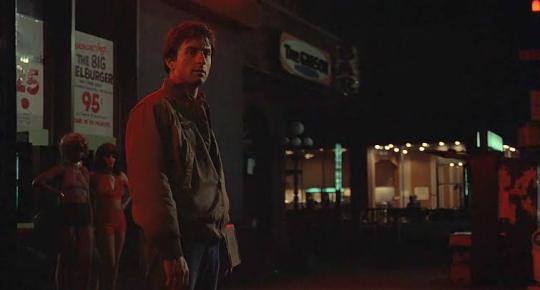
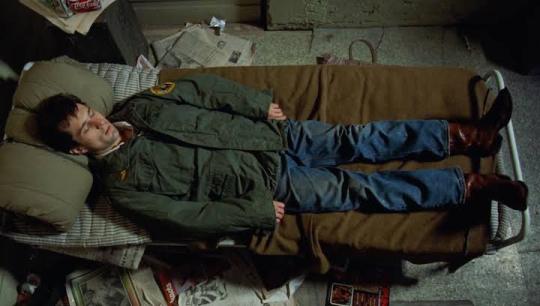
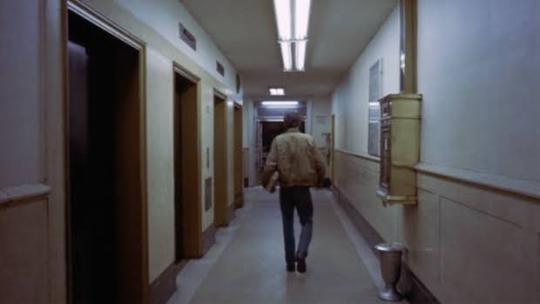
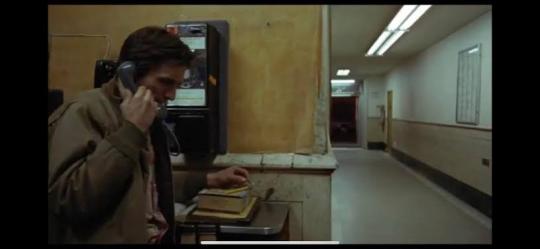
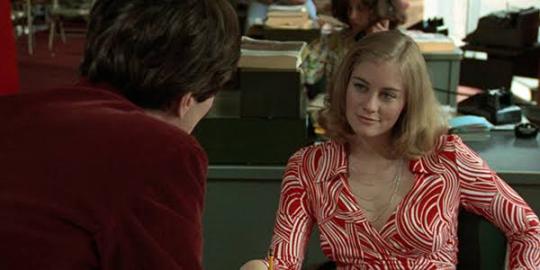
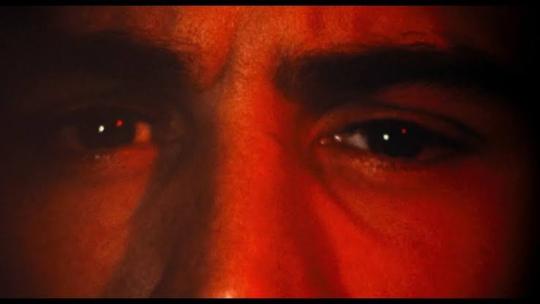
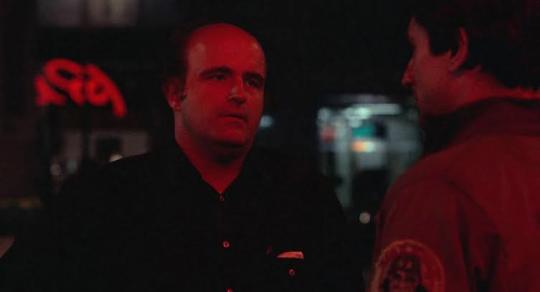
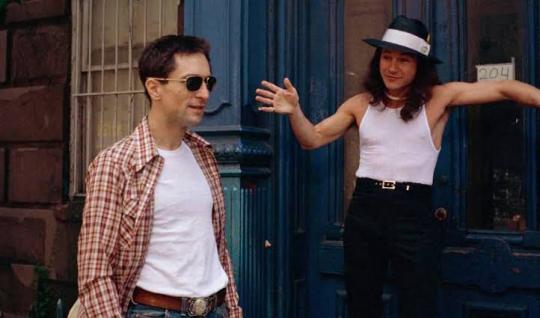
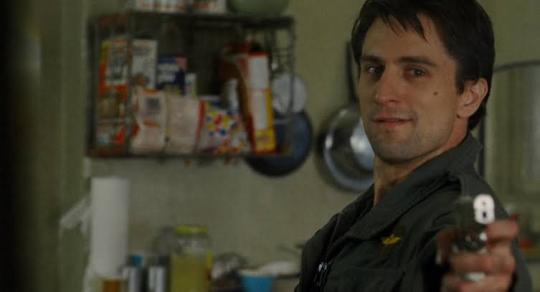
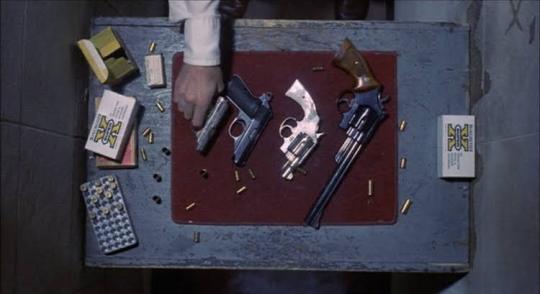
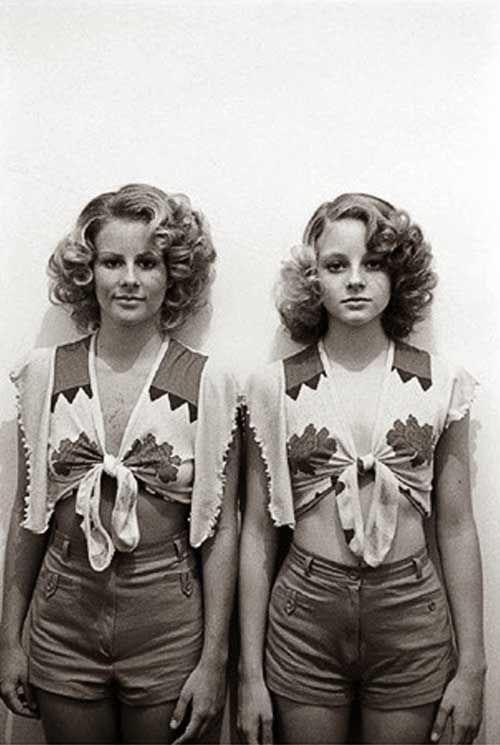
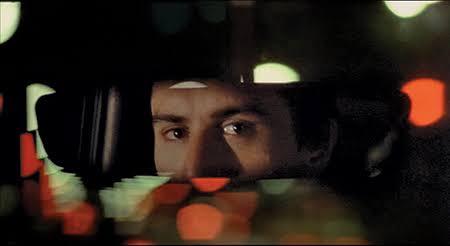
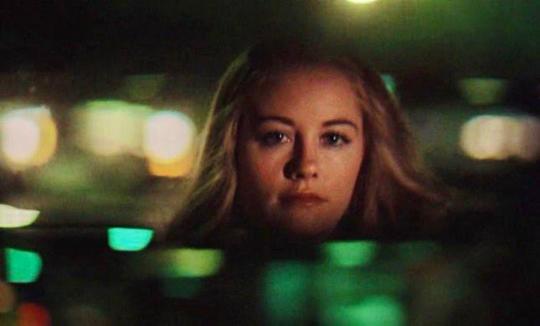
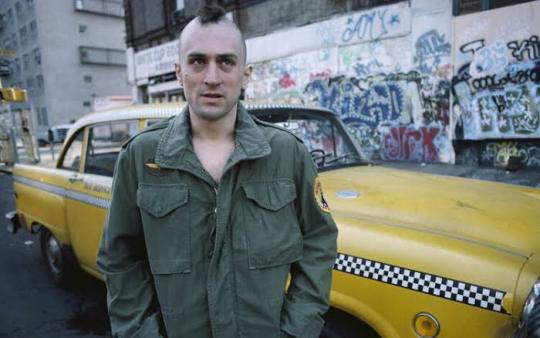
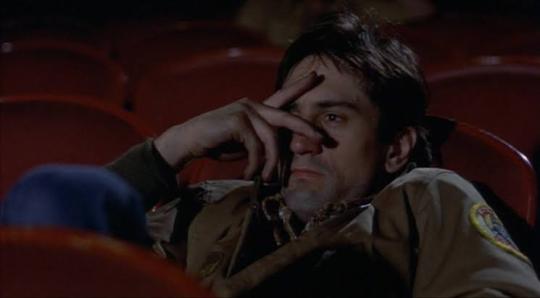
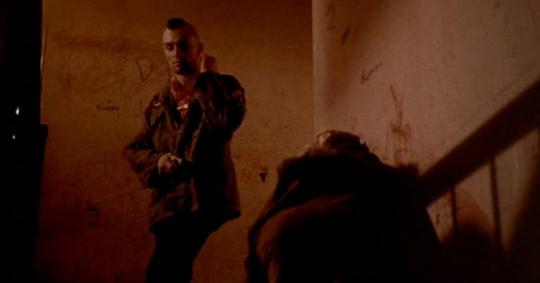
Taxi Driver - dir. Martin Scorsese - (1976)
#movie#martin scorsese#robert de niro#taxi driver#jodie foster#harvey keitel#cybill shepherd#albert brooks#peter boyle#travis bickle#henry krinkle#1970s#70s nostalgia#70s style#70s film#postmodern#postmodernism#loneliness#ptsd#existentialist#existentialism#philosophy#notes from underground
10 notes
·
View notes
Text
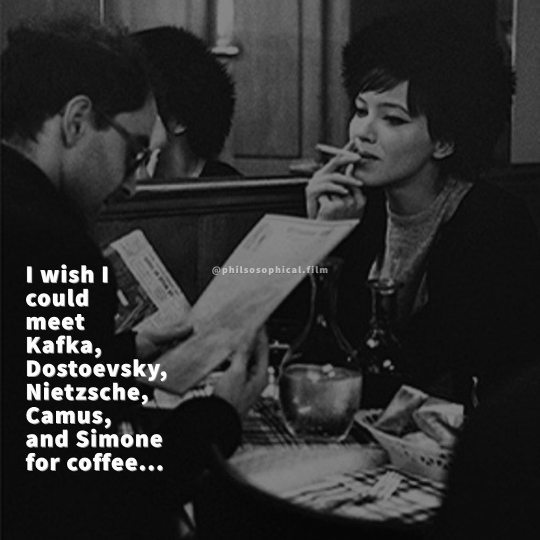
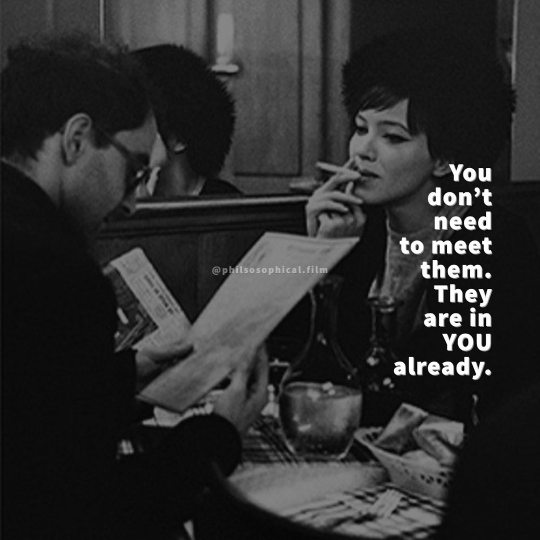
#Anxiety from your existentialist#Anxiety#Nihilism#absurd#Existential crisis#Existentialism#Philosophy#Aesthetic#Camus#Nietzsche#jean paul sartre#Noir#Film Noire#Quote#sayings#Romance#Love#Kafka#dostoevksy#Literature
6 notes
·
View notes
Text
my hot take on the awful nuclear war movie discourse is that i do actually think there is a way to create a critical but sympathetic biopic abt the jewish leftist/communist scientists involved in the manhatten project, who at the moment of 1942 did earnestly (and had reason to) view themselves as part of an urgent struggle against global nazism, and which can cut thru the usamerican imperialist apologia hero-fetish impulse and lay bare the genocidal devastations left in the wake of continuing us counterinsurgent militarism across the continent and pacific (which means addressing the anticommunism!) w/o resorting to white man existentialist handwringing. such a film however, would not be politically commensurable as a bajillion dollar summer blockbuster directed by christopher nolan!
#qq#film directors who think they are existential philosophers will almost always be insufferable to me and it's not even just nolan#that being said. the 'takes' r tiring (i say as i contribute the inaneness)#like. no offense but did /u/ even know abt us nuclear testing and the fall of the scientific popular front in the 40-50ss???
2K notes
·
View notes
Text
thinking about how many times i’ve wanted to bring in “low brow” sources in my academic writing, and how such a mode of critique is so fundamentally foreign to the institutions in which i’ve been embedded that i never even considered it a possibility. i once wrote about how beowulf echoes in tolkien’s fiction (primarily using the hobbit to argue that both narratives employ rings) back in high school, but that was an exception because my history teacher was a massive nerd, and tolkien was a well-respected medievalist so the topic didn’t seem far-fetched regardless. but that has very much been an exception for me. i know that film and media studies exploring television, genre fiction, even memes and fandom culture, that there are spheres dedicated to analyzing these “low brow” works of art and social phenomena. but as a comparatist and shakespearean, my area has always been relegated to quote-unquote “high brow,” despite my abiding interest in many “low brow” mediums and artworks.
ANYWAY. this preamble was all to say: how would you guys feel about participating in a zine where we would compile a bunch of essays each exploring a topic through comparing a piece of “high brow” art to “low brow” art? for example, if i expanded on my post using satan and sin in paradise lost to discuss akio and anthy’s roles in utena, or using 19/20th c. existentialist philosophy as a framework through which to discuss adventure time. you could also take a theoretical approach to an internet phenomenon, such as exploring character criticism from a fandom perspective. (these are all ideas for essays i would write if i had the time, so obviously these examples are just templates, not workable suggestions.) this would obviously take a long time to compile and there would be no fixed deadline (i have way too much on my plate at the moment for that anyway), this idea literally just came to me because i was thinking about how fun it could be to work on an online collaborative zine, and how the broader topic could best reflect the discourse of the internet as a collaborative and (ideally) egalitarian realm (for media as well as people). mutuals (or nonmutuals) who are interested, dm me with a description of what you want to write about, and i’ll get back to you with the logistics once i have more of a sense of whether or not this is actually going to happen, and if so, how.
#this is so spur of the moment lmfao i was just reading bao3bei4’s post about zines and was like hey. why not#I think some of you would be really amazing at this#and it wouldn’t have to be long it could be as long or as short as you needed#even just replying to this post to express initial interest#even if you don’t have an idea yet#and there’s no time pressure either#could be fun I think!!!!#o#100#high low zine
188 notes
·
View notes
Text
Paul McCartney, Celia Mortimer, Iris & Vi Caldwell & Mike McCartney: Sketches for a Coming-of-Age Novel.
All quotes from TUNE IN by Mark Lewisohn, except the last one.
[Paul] had two main girlfriends in the last weeks of 1962 and neither knew of the other. One was Celia Mortimer, 17, the strikingly attractive redhead from art school who designed her own clothes and was a big Beatles fan at the Cavern.
'In my first year at art College everyone was wild about trad jazz, but then word came up the hill that ‘things were happening’ at the Cavern; a few of us went down one lunchtime to have a look—and there were the Beatles. […] It was the first time anyone in Britain had the black polo neck, black corduroy, existentialist look. I instantly took their lead and started to make hip black corduroy things to wear.'
‘[…] Paul was attractive, intelligent, arty, all the things that appealed to me, plus he was good to be with: a genuine, gentle person who wanted to please. He was the complete opposite of John, who was snarly and grumpy and incredibly, incisively funny. Paul was the nice one. We started to go out, but things were still quite innocent. Because I lived some way out of Liverpool there weren’t many places we could go, except to sit in his dad’s front room or my friend’s front room, or the cinema—we saw the first James Bond film.’
EXOTIC NIGHTMARES
Paul’s other girlfriend was Iris Caldwell—Rory Storm’s witty, pretty, blonde sister; George’s first love; the 18-year-old daughter of Ma Storm, whose house, Hurricaneville at 54 Broad Green Road, was central to the Beatles’ late-night social scene.
‘He had a beautiful voice and puppy-dog eyes,’ Iris says, ‘and he was much more interested in me than I was in him. I wanted more than a tuppence-ha’penny guitarist of a Liverpool group.’
Iris’s professional dancing career had taken off: she was as busy as Paul, working summer seasons and London shows and touring around the country; they could only see each other when their diaries dovetailed, and just as Paul was with Celia when Iris was out of town, she was secretly going out with Frank Ifield. […]
Iris always knew that a big part of the attraction for anyone going out with her or Rory was the chance of extended time at Hurricaneville, to hang longer around her dad Ernie and especially her mum, Vi. […] ‘Mum never chucked anyone out,’ Iris says. ‘We were all late-night people apart from me dad, who the Beatles called the Crusher because he had exotic nightmares and ate household objects.’ […]
Mary had been gone for six years this October, and Vi Caldwell was one of the women who tried to fill the breach. ‘I was practically a mother to Paul,’ she said without boasting. She made him food and drink, took his stage-soaked shirts and washed and ironed them, and shared easy intimacies. ‘Paul used to like her combing his legs,’ Iris says. ‘He had really hairy legs and he’d come in from the Cavern all tired, roll up his trousers and she used to comb his legs. How ridiculous can you get? But he adored my mum and my mum adored him.’
Vi recalls: ‘Paul was very temperamental. He would come on occasions and would be terrifically friendly and down-to-earth, and on other occasions he would come and be rather aloof and we wondered if we had offended him, as if he was thinking ‘I’m being too friendly so I’ll keep you in your place.’ That was our impression.’
THRILLING IN A DIFFERENT WAY
[Paul] was without the others, but with Celia Mortimer…and a new song. It was Tuesday/Wednesday 23/24 October [1962], the Beatles’ sole two-day break of the year, and Paul decided to leave his car at home and have an adventure: he and Celia hitch-hiked to London to see Ivan Vaughan. Paul loved hitching: he enjoyed chatting to strangers and seeing himself in an observational role, but he’d only done it with George or John, never with a girl. Celia—intelligent, chic, a pretty redhead—made it thrilling in a different way. And it was to see the brilliant Ivy, his Institute mate and John’s boyhood pal. […]
The new song was I Saw Her Standing There, though it had no title as yet. Its melody and structure skidded into Paul’s head late on Monday as he drove back from a Nems Enterprises Showdance in Widness. This was a sophistication of delivery had never experienced, inspiration so excitingly hot that when he got to Hurricaneville he grabbed an acoustic guitar and started working it out. […] It was truly a magical moment for Rory Storm, who’d never seen anyone write a song before. Vi and Iris would always maintain that he asked Paul if he could have it, exclusively, and Paul said yes—but as Rory didn’t have a record contract it’s unclear why he asked and Paul may have said yes only to regain some necessary peace and quiet.
Celia: ‘We had an amazing time, just wandering the streets in the sunshine, looking at London, holding hands and having fun, and Paul had the melody of what became I Saw Her Standing There going round his head all day, humming and singing it and fleshing out the words. […] He said, ‘What rhymes with “We danced through the night?” and I came up with ‘We held each other tight’, which was really quite naff, but he used it.’
BACK TO McCARTNEY-LENNON
However, the song was completed only when he had a front parlour session with John at 20Forthlin Road. They tried out little bits on Jim Macs Nems piano but mostly used guitars, working ‘eyeball to eyeball’ just like when they’d first written together here as schoolboys. Mike took photographs of them sitting by the little tiled fireplace—important historic images, the only such photos ever taken—so here we see these two sharp ambitious tuned-in young man looking down at an old Liverpool Institute exercise book in which Paul has written the words, complete with plenty of crossings-out. John is wearing his black horn-rim glasses and playing his Jumbo Gibson, Paul is playing a cheap Spanish acoustic of unknown history. Another original, a McCartney-Lennon one, is taking shape right here, right now.
BIG PLAYER CELIA AND THE OTHER McCARTNEY BOY
Celia Mortimer’s relationship with Paul ended in the last weeks of 1962. ‘As the Beatles spent more time in London, Paul was there and not in Liverpool so much, and our situation just fizzled out. There was no time for it.’ She went on to become a big player on the London fashion scene, with her own label and studio on Great Portland Street, just a long from where she spent a few hours with Paul in 1962. In between times, she went out for a long time with Mike McCartney and was part of the Liverpool poetry scene.
Mike (a Ladies’ hairdresser at the time): MY FIRST LOVE AND BOB 'FOLK RUBBISH' DYLAN (from The Macs, 1981)
One day my first real love, after mum, walked into the salon; she was one of a group of models posing for the Daily Post and Echo. I was brushing up the hair as it cascaded endlessly down on to the floor. I wasn't exactly the brushing up which excited her, it was the way I did it (isn't it always?). The brush was balanced, she later recalled, on the end of my index finger, the furthest point from my body and, with absolute disdain, I followed it across the shop floor.
Not being a Post and Echo model at all, but in truth a hungry student plying her body for money, she returned for the free evening classes where she became my model, and I discovered that her name was Celia. From a model customer she became a model model, and from a model model we became a model couple.
She was the first woman I gave myself to, and she gave herself in return. In her Husky Street flat we got lost in each other's body and mind; we swam together through many Liverpool 8 late nights and often into the morning, when she would get up to cook breakfast and put on records. I would just lie there, male chauv-like. One morning she kept playing a particular album which didn't impress me.
'Who's that Ceel?'
'Someone they keep playing at college . . . Bob Dylan.'
'Never heard of him.'
'Neither had I, but after a while he's quite good.'

"Ceel—my first real love (after Mum)." Photo by Mike McCartney.
#just me daydreaming#coming-of-age novel#the recurring themes drive me nuts: the chic redhead and the leg combing#The Liverpool Relationship Radiant#Mike and Paul and Celia#John and Paul and Ivy#Etc#Paul and mothers and Paul's complex character#These women were too good for him#paul mccartney#mike mccartney#I saw her standing there#the beatles
44 notes
·
View notes
Text
All Of Those Voices review | Louis Tomlinson documentary will surprise even the cynics among us
WHYNOW
Teddy Coward | 22 Mar 2023
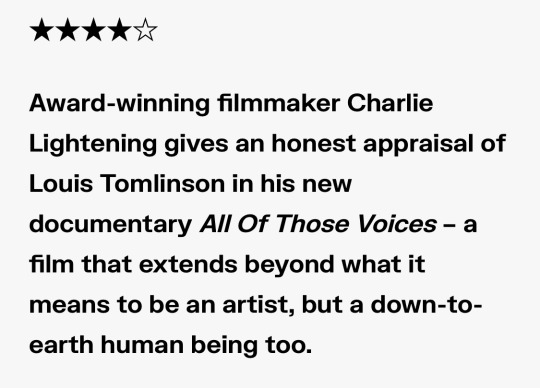
2010 was The X Factor’s peak. Not only did it see the show’s highest average weekly viewing figures, raking in a peak of 19.1 million viewers for its final, but it also involved a list of names that have become embedded in British TV history. Cher Lloyd, Rebecca Ferguson and, of course, Wagner, the barmy Brazilian from outer-Brum; it was a year that seemed to match a genuine degree of talent with a light-heartedness.
And, of course, it brought together five baby-faced teens who would go on to produce not just the show’s most successful act but one of the most popular boy bands this country has ever seen: One Direction.
Yet because, with The X Factor, what was once pop cultural cache has nowadays become merely pub quiz fodder (the show last aired in December 2018), that snobbishness towards 1D still lingers to this day – despite the many awards its leading light, Harry Styles, picks up as a solo artist.

All Of Those Voices, the new documentary from Charlie Lightening (whose prior credits include the award-winning Liam Gallagher: As It Was and The Paul McCartney Project), reminds us that at the heart of the manufactured, Simon Cowell-orchestrated world One Direction once operated in, lie real lads. And one of those young men, Louis Tomlinson, is relatable, honest, and has overcome more than his fair share of struggle under a public spotlight.
The film’s best attribute – and the way it achieves it – is how it’s shot. It’s not so much fly-on-the-wall as it is captured with considerable trust between artist and filmmaker. At one stage toward the end, Louis and his crew joke about the seeming lack of a barrier between each other, and this feels like it was extended to Lightening, too.
As such, Tomlinson is forthright about his sense of having no control over his own (let alone One Direction’s) destiny for at least the first two-and-a-half years of the band. He casts himself as the band’s thinker in a rather shrewd creative light by telling us he’s most proud of being the member with the most songwriting credits.
But another strength of the film is that it doesn’t dwell on Louis’ 1D days. Granted, you can’t tell his story as an artist by ignoring it, but its inclusion merely paints a backdrop of what’s to come, most usefully starting the narrative arc of someone at a loss, personally and creatively, when the band announced their split in late 2015.
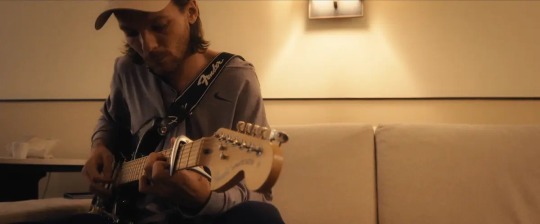
From here, Louis begins to build, pensively smoking and staring into empty space like any self-respecting existentialist as he contemplates life as a solo artist. Then, tragedy hits. His mother, Johannah Deakin, with whom he had an exceptionally strong relationship–mainly because of an absent father growing up (which struck a particular nerve with me) – passed away in December 2016 after her battle with leukaemia.
Replays of an X Factor performance Louis gave that very same week, spliced with personal testimony from the present day, remind us of the public gaze he was under during an exceptionally challenging period.
Meanwhile, the tragic death of his sister Félicité in 2018 is discussed in less detail but adds to the image of not just an artist but a man beset by loss, still keeping his head afloat. (A moving discussion with Louis’ grandmother provides insight into the keep-calm-and-carry-on spirit of the whole family).
These make the high points feel all the more gratifying – and there are plenty of those. From the release of his long-awaited debut album Walls in 2020 to his triumphant, Guinness World Record-setting livestream during the pandemic and his subsequent return to a global headline tour, it’s safe to say his artistic trajectory is a pretty sharp incline throughout the film.

But whereas some pop personalities might make that seem like an irksome inevitability, the setbacks Louis Tomlinson faces and, crucially, his authentically affable charm mean you end up rooting for him. Do you have to be a fan of his music? Not at all. Can you still admire the way his personhood is portrayed? Of course. And this film captures that in abundance.
Of course, Louis’ mass of fans will love it. That much is a given. But for a purely personal tale, even the most cynical among us would struggle not to find something from All Of Those Voices. Indeed, we’ve come a long way since the fakery of The X Factor.
65 notes
·
View notes
Text
god i wish i knew about goncharov when i was taking my philosophy in film course... although i dont think scorcese intended it to be an existentialist film, i could absolutely write a paper on the existentialist themes in the movie. especially breaking down katyas character, but honestly i think focusing on goncharov himself and the symbolism of the clocks would be more fun as a paper
127 notes
·
View notes
Text
All of Us Strangers

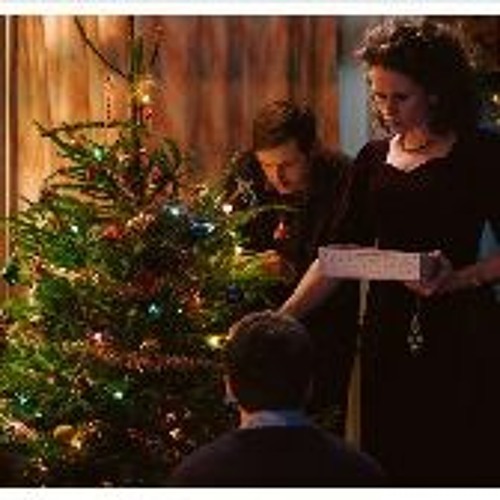
Did you ever watch a movie and early on suspect, or rather dread, there would be a particular twist at the end? If it doesn’t’ happen, you may be so relieved, you overvalue the film out of sheer relief. And if it does, you may be tempted to undervalue what just passed. And now that I’ve brazenly attempted to read your minds, let me say that was my experience watching Andrew Haigh’s ALL OF US STRANGERS (2023, Hulu). There’s some beautiful work in the film. If you’re old enough to have lost your parents, the scenes in which Andrew Scott’s lonely TV writer re-encounters them as they were just before their deaths are tremendously moving. Both Jamie Bell and Claire Foy are quite warm as the parents, and she is simply incandescent. The reunion is complicated by the fact that Scott is gay and comes out to parents whose minds are still stuck in the 1980s, but their responses make sense without falling into cheap sentiment. This is intercut with his growing relationship with Paul Mescal as a man Scott meets in his London apartment building. Their rapport is quite sexy, not because it’s graphic but rather because Haigh and his actors capture the way intimacy can grow between two people. In fact, one of the sexiest scenes doesn’t even involve touching. Scott is writing on the sofa and looks over to see Mescal sitting in another part of the room reading Auden. It’s the kind of sharing a lot of us yearn for.
Haigh has called this his most personal film. He even used his childhood home as the location for Scott’s. When he just lets the characters interact, it’s all quite lovely, even if much of the dialogue is more theatrical than naturalistic. But there are also places it feels over-planned. Some of the music choices — Blur’s “Death of a Party” when Scott is left alone in a gay bar, The Pet Shop Boys’ “Always on My Mind” when Scott and his parents celebrate Christmas together, Patsy Cline’s “If You Could See the World (Through the Eyes of a Child)” when they go to their favorite place from Scott’s childhood — are so dead on it’s a little distracting. You can feel yourself being manipulated. And eventually the reunion with the parents starts feeling like something out of BRIGADOON or IT'S A WONDERFUL LIFE. It’s fantasy as moral lesson. Only in those pieces, the fantasy led to something healing. I don’t know how healing the twist in ALL OF US STRANGERS is meant to be. It feels like THE TWILIGHT ZONE as written by depressed existentialists.
8 notes
·
View notes
Note
YOU WATCHED ASTEROID CITY?? ALREADY?? I'm so glad you liked it!!!
Im sorry but um. Some fangirling up ahead.
Did you manage to unpack some of the metaphors yet. Because. That movie is full of them. I watched it 5 times and I still don't completely understand it. But its really sad actually. It's full of metaphors about grief and death and not being able to move on if I understood it correctly. The actor who plays oggie falls in love with the playwriter. And the playwriter writes a film about oggie falling in love with his wife, who dies, and leaves him with immense amounts of grief. Before the play is even done, the playwriter dies, and leaves the actor with immense amounts of grief. But its the 50s, so no one can know about them being together. So the only place he can properly express his grief is as an actor in the play, grieving the death of his wife. When oggie and midge rehears a scene together, midge tells him "use your grief." I think she was talking to the actor playing oggie, not only to oggie himself. There are many other things I could go on about for hours but this is getting out of hand so I'll stop here.
Sorry about this. I love this movie. And by the way everything I just said was my opinion, idk if any of it is true. That's just how I saw it lol
I LOVED IT SOO MUCH, I did notice that there were a lot of metphors and I'm 100% going to watch multiple times to try to understand it as much as I can. The main thing I got from it is that the character (and actors) were looking for meaning, a sense of purpose as Woodrow said, even when the world might be meaningless and absurd they still wanted to find some kind explanation ( I loved how the showed this happening to both the characters as well as the stage actors). I also think it's about grief and how life goes on no matter what happens, even when it feels like the world is ending, it will always keep spinning, I really like the way they portayed this because at the beginning of the movie they did nuclear testing, and it seemed like that was a regulary occerence. And after the Alien visited and the lockdown was lifted the testing continues like nothing ever happened. But yea I'll definitely have to watch it again to tackle more of the metaphors. I also really like how this movie has a kind of existentialist/absurdist philosophy. And I also thought that the cinematopgraphy was incredible but I'd expect no less from Wes Anderson.
Thank you again for recommending🫶. (And no need to apologise for ranting, I love hearing other people's theories about stuff).
6 notes
·
View notes
Text
On August 11, 2005, I Heart Huckabees debuted on DVD in Hungary.
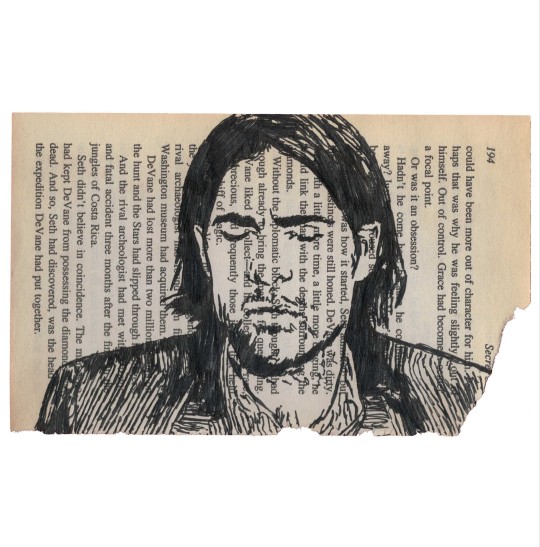
#i heart huckabees#jason schwartzman#comedy film#comedy movies#screwball comedy movie#existentialist film#buddy comedy movies#movie art#art#drawing#movie history#pop art#modern art#switzerland
2 notes
·
View notes
Text
Had a convo with a somewhat friend recently about Everything Everywhere All at Once (EEAO), aka the best movie, and they told me that “anyone can put philosophy over anything if you try hard enough” when we disagreed about the message of the film.
Please!!! No!!! Also spoilers under the cut.
The movie very deliberately referenced Albert Camus’ Myth of Sisyphus in its themes.
Sisyphus is a Greek king who is cursed with rolling a boulder up a hill for all eternity, only for the boulder to roll back down once it nears the top (also the he tried to live forever by trapping Death and getting Persephone to let him out to do his funeral rites…Sisyphus was a bad guy). The point of his punishment is that trying to escape Death is ultimately futile.
Camus takes this conceit and uses it as a metaphor for life as well — life is also, ultimately, futile. We get up everyday to roll the rock up the hill, but it always rolls back down. There’s no divine purpose to the rock rolling except to emphasize how meaningless it all is. Life, similarly, has no purpose (since Camus came after the existentialists).
Why, then, do we bother? Why don’t we all just lay down and die? Camus offers the following: we must imagine Sisyphus happy. If Sisyphus finds happiness in the act of rolling the rock, it ceases to be a punishment. Similarly, we must find happiness in the act of living. Get a Starbucks once in a while and hug a furry animal, you’ll understand. These small moments of joy which we eke out are things which we must choose to continue living for, every single day despite the pain we endure, because for most people it’s worth it.
EEAO has this exact theme. When Evelyn and Joy are beginning a reconciliation of sorts in the parking lot, they talk about the pointlessness of living, where all there is are these little moments of happiness and the rest is meaningless. And Evelyn makes it clear that yes, there’s a lot of pain in life and her relationship with Joy. They fundamentally do not understand one another, in part because of the generational divide and the immigrant/ABC perpetual foreigner division between them. It causes them pain, it hurts, it’s frustrating and annoying because they can’t seem to quite make the other understand. But Evelyn states that she essentially believes that loving Joy and having her as a daughter is WORTH IT ALL. And, when Jobu Toppacky chooses not to enter the all-consuming bagel of nothingness (which is definitely a metaphor for Joy’s suicidal ideation), this is symbolic of her ALSO choosing the sparks of joy over nothingness. We must imagine Sisyphus happy.
THATS WHAT THE MESSAGE IS. Sometimes, choosing those sparks of joy is worth it. Some people might not think it’s worth it — think of Gong Gong and his decision to basically disown his daughter for not obeying him — and they choose nothingness over any scrap of happiness, because the pain is too much. Sometimes, that’s what’s necessary. But the point of life is the pain and the happiness (like how Jobu Toppacky says, she knows the joy and pain of having Evelyn as her mother), and we choose every day to wake up and try again and again for that scrap of happiness.
And it’s not perfect! Obviously! My somewhat friend was caught up in Evelyn fat shaming her daughter (something I felt so close to my heart because whew, growing up Asian). She said that Evelyn still throwing out a “you look fat” comment at the end made it seem like the movie “tripped and fell at the finish line.” THE FATSHAMING IS BAD BUT ITS NOT THE POINT OF THE MOVIE, OBVIOUSLY.
Of course the fatshaming is bad!! Joy treats it like an act of affection (which it basically is — in my family at least, it’s meant in a “I care about your well-being, and I pay attention to you because indifference is tantamount to disdain”) but it’s still not good. It’s very bad, actually, and it highlights the way that Evelyn has grown up in a very different culture than Joy and still, even at the end of the movie, does not completely understand her daughter.
And that’s GREAT! Because in real life, there is no perfect communication. We are casually cruel to people for no reason because we just don’t understand them, or they don’t understand us, or both. You may not realize it, but you’ve probably hurt someone you care about because you’ve said something in a way that was interpreted poorly. Evelyn hasn’t learned to understand her daughter or even accept her daughter completely; she’s learned to keep trying, to keep “tripping at the finish line” and getting up again, because her daughter is WORTH IT to her. And Joy, similarly, is going to keep trying despite the mutual pain, because her mother is WORTH IT to her. How that trying turns out is ambiguous at the end of the movie — maybe Joy, like Gong Gong before her, doesn’t find it worth it in the end and cuts off her mother entirely. But for now, she finds fulfillment in the small moments, enough to choose to continue on. We must imagine Sisyphus happy.
This is NOT a movie about “family is more important than anything, even when your family is sucky.” It’s about the fact that Evelyn and Joy CHOSE EACH OTHER out of their own volition. Because those little moments mattered enough. That’s why Evelyn is so devastated at Gong Gong for abandoning her, asking him how he could let her go. She can’t imagine not enduring this suffering (she legit gets beat up by like five million guys and hops dimensions for fuck’s sake) for her daughter. She loves Joy, and she will keep choosing her. And Joy, ultimately, shows she loves Evelyn and will keep choosing her as well.
Waymond is the perfect foil for Evelyn because he is the embodiment of the “kindness and love just because it makes it all a bit more bearable” sentiment. He’s played off as an idiot, and he kind of is, but his glowing sense of sheer goodness radiates throughout the film. Why not put googly eyes everywhere? It’s hilarious! Why not give cookies to people? Cookies are good! The mundanity of life sucks ASS, and it keeps going and going (not unlike the cycling of the machines in the laundromat), why not have some enjoyment? Life is fucking meaningless but guess what? These cookies are bomb af.
In the world where Evelyn is a celebrity, Waymond appears to have found success elsewhere, whatever that looks like. Evelyn is undoubtably successful since she’s a superstar. And yet, Waymond says that, in another life, he would have also found fulfillment in just running a failing laundromat with her. Evelyn is heartbroken that Waymond doesn’t love her in the way she remembers from her version of Waymond — but why? She’s a superstar! She’s more successful than she ever dreamed! But she had chosen Waymond in the past, and she found that choice fulfilling enough that, faced with its loss, she is devastated. Waymond said that his love for Evelyn would have made the laundromat worth it, and Evelyn seems to agree here. We must imagine Sisyphus happy.
Anyway, that’s why EEAO is great, don’t @ me.
#everything everywhere all at once#deep dive#movie analysis#albert camus#listen I cried so much I needed to lie down after#seriously as someone who is the daughter of an immigrant from China there is so much resonance there#yeah it fucking hurts sometime but there are enough small moments that make it worth it#because if I gave up my mother it might stop us hurting one another through misunderstanding but then the happiness stops too#and again this isn’t some excuse for abusive relationships#this is just a relationship with misunderstandings that hurt#aka most relationships#shoutout to my mom#whom I love but also wish she would stop getting on my case about calling her
28 notes
·
View notes
Text
after being reminded of the film’s heavy trans themes daxe and i watched “synecdoche new york” last night, my first time seeing it since i was a teenager. it holds up! teen me was right about it. it does seem to go off the rails pretty often but it feels like charlie kaufman’s apparent obsessive spiraling in the screenplay perfectly parallel caden’s own obsession with his play within the movie. you have this writer trying to create this perfect simulacrum of reality in the form of a messy, complex, existentialist play, which contains the play within itself, and within that is another play and on and on… feels very autobiographical to me. however in all the messiness there is definitely an intentionality behind every choice and when you find connections it does truly seem to add up to something. idk what to make of the trans themes though - “i want to be pretty” “i think i would’ve been better at being a girl” - caden’s gender being constantly mixed up by others, and him eventually literally switching roles with ellen… there is something undeniably trans here but i don’t think that’s all it’s getting at, it seems to come from his desire to understand others (especially the women in his life) better & also taking on the role of his ex wife’s maid speaks to his own paranoia about sickness and death, trying to keep her space clean so she may live longer… ellen said “caden is a man already dead” his therapist asked him “why did you kill yourself?” his stalker, playing his role in the play, did kill himself… but he dies playing the role of a woman in the arms of an actress playing the role of her mother… much to think about, definitely a movie where i will find new meaning in it every time i watch it, very beautiful
anyway i could probably go off about this in a more thought through and structured way but the reason i actually started to write this post is because we found out right after watching that we coincidentally happened to watch it exactly 10 years (to the day) after phillip seymour hoffman died
15 notes
·
View notes
Text
Have you read...
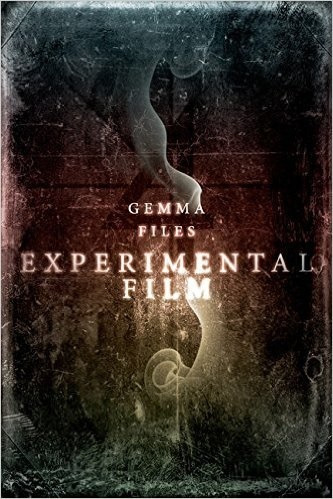
Experimental Film is a contemporary ghost story in which former Canadian film history teacher Lois Cairns-jobless and depressed in the wake of her son's autism diagnosis-accidentally discovers the existence of lost early 20th century Ontario filmmaker Mrs. A. Macalla Whitcomb. By deciding to investigate how Mrs. Whitcomb's obsessions might have led to her mysterious disappearance, Lois unwittingly invites the forces which literally haunt Mrs. Whitcomb's films into her life, eventually putting her son, her husband and herself in danger. Experimental Film mixes painful character detail with a creeping aura of dread to produce a fictionalized "memoir" designed to play on its readers' narrative expectations and pack an existentialist punch.
submit a horror book!
#Experimental Film#Gemma Files#horror books#horrorbookpoll#horror#bookblr#books#ghost story#paranormal horror#supernatural horror#canadian horror
5 notes
·
View notes
Text
look i may have a LOT of criticism towards the creator of tadc n not fully trust her n all but like, to say tadc "seems like its only made that way to draw attention" is to show that you have not watched or engaged with the other works done by its creator AT ALL. like. theyre all like this. the same type of character design, the same type of humor, type of bouncy animation, the same type of surreal sometimes nigh existentialist storylines. one of her short films is even about a video game character going off the usual path and finding out a much darker path underneath the world!! this shit is par for the course- if you wanna criticize it or dont like it its like. fine. ur allowed to. but its so weird to accuse it of being made without passion in mind bc of the themes or designs when thats technically such a clear staple of everything the creator has already done.
10 notes
·
View notes